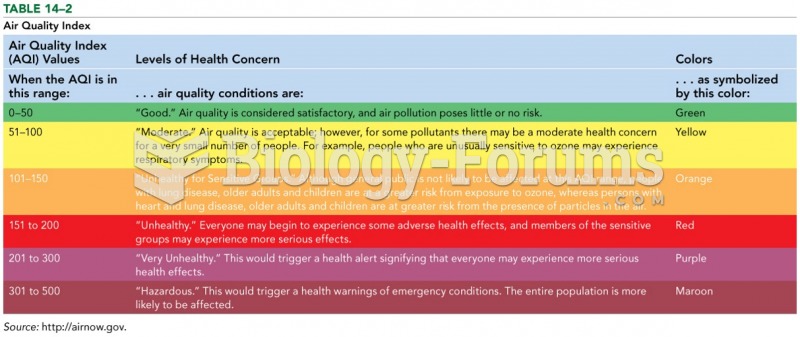|
|
|
When intravenous medications are involved in adverse drug events, their harmful effects may occur more rapidly, and be more severe than errors with oral medications. This is due to the direct administration into the bloodstream.
The Romans did not use numerals to indicate fractions but instead used words to indicate parts of a whole.
Medication errors are more common among seriously ill patients than with those with minor conditions.
About 100 new prescription or over-the-counter drugs come into the U.S. market every year.
A strange skin disease referred to as Morgellons has occurred in the southern United States and in California. Symptoms include slowly healing sores, joint pain, persistent fatigue, and a sensation of things crawling through the skin. Another symptom is strange-looking, threadlike extrusions coming out of the skin.







